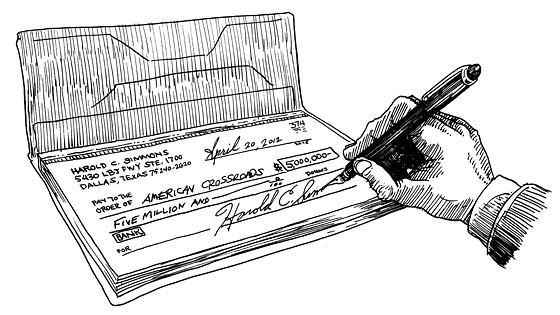
How did we end up with super-PACs? Was it all Citizens United?
Actually there were two different court cases, and the one that’s often overlooked is SpeechNow. Since 1976, it’s been true that an individual person could spend as much of his own money as he wanted on independent election expenditures, but as soon as that person sat down with other people to pool their resources, then that group became a PAC. And because they were a PAC, each individual person could contribute only $5,000 a year to the group. The ruling in SpeechNow said getting together in a group doesn’t change your right to speak freely, so there can’t be any restrictions on the amounts individuals can contribute. Citizens United magnified it by saying, not only can there be no limits on what individuals can give, but there can’t be any restrictions on corporations or unions doing the same thing.
And now to further complicate matters you have 501(c)(4) “social welfare” organizations like the Koch brothers’ Americans for Prosperity.
The difference between a 501(c)(4) and a super-PAC is that the primary purpose of a 501(c)(4) is not supposed to be trying to get candidates elected or defeated, it’s supposed to be educating the public. 501(c)(4)s can still do some things that look like what super-PACs do, but as long as it’s not the majority of their activity, they can call themselves a 501(c)(4) and don’thave to publicly disclose their donors.
But what happens when a person gives secretly to a 501(c)(4) like Crossroads GPS and then GPS funnels that money to its sister super-PAC, American Crossroads? Isn’t that an end run on disclosure laws?
Once you’ve said that the super-PACs can accept funds from all these different sources, when American Crossroads files a report and says, “We got a million dollars from Crossroads GPS,” what’s the basis on which any regulator would ask another question? It’s disclosed. They met the standard.
That’s insane.
You can’t assume that this is some kind of coherent system where the boundaries are clear. It wasn’t created through the legislative process; it wasn’t a policy decision. Individual court cases shaped this, and it’s not the judges’ problem to develop a system that makes sense.